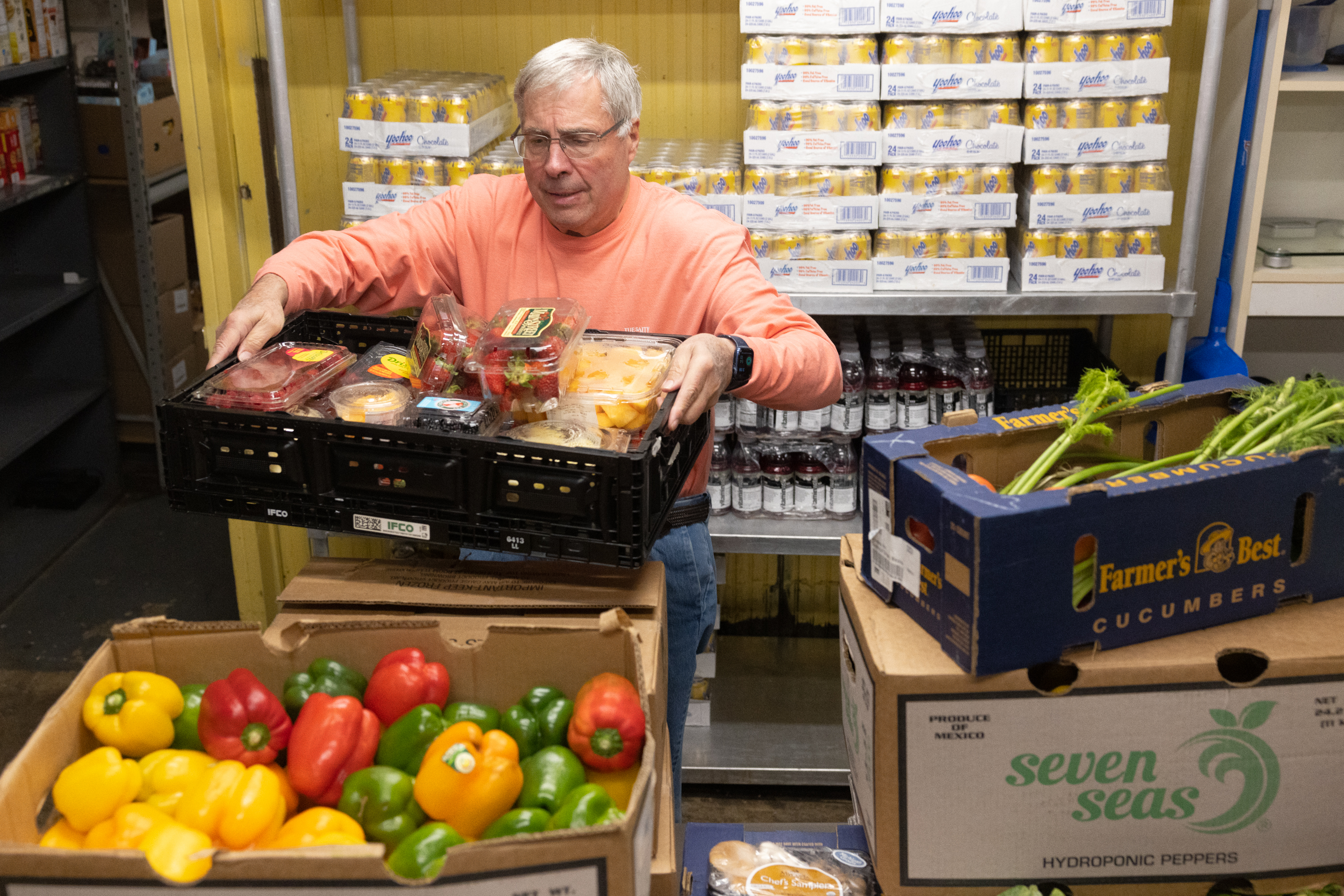Parishes to hold emergency food collections in November

Halt in SNAP benefits amid government shutdown prompts concerns about availability of food at pantries
With an anticipated interruption to a food aid program amid a federal government shutdown, Archbishop Mitchell T. Rozanski is calling on parishes in the Archdiocese of St. Louis to hold an emergency food drive in November.
Parishes will take up a collection at Masses the weekends of Nov. 1-2 and 8-9, with donations to be distributed to area food pantries.
The Missouri Department of Social Services advised the public in October that, effective Nov. 1, SNAP (Supplemental Nutrition Assistance Program) benefits will not be issued due to the ongoing federal government shutdown. More than 650,000 Missourians who rely on SNAP are expected to be affected by the temporary halt in benefits.
“Without these benefits, over 292,000 people in the city of St. Louis and 10 surrounding counties of our archdiocese will lose access to vital food benefits that overwhelmingly support our children, our elderly and disabled neighbors, and our low-income workers,” Archbishop Rozanski wrote in a letter to pastors. “In the absence of this support, these neighbors will turn to our food pantries, churches and nonprofits, which have always been ‘the safety net to the safety net.’”
Parishes that operate or are affiliated with a food pantry are asked to keep what is needed from the food drive to get through the halt in food benefits. Excess donations should be given to another nearby food pantry. Parishes not affiliated with a food pantry should drop off collected items at a pantry of their choice.
The SNAP benefit cutoff is compounded by cuts to other federal food programs, which have prompted concerns about long-lasting effects even after the federal shutdown ends.
At a food security summit hosted by the archdiocese in October, Kat Walcott of the Incarnate Word Foundation shared statistics on cuts to the SNAP program, which she said has been shown to reduce food insecurity by up to 30%. In July, the One Big Beautiful Bill Act cut more than $186 billion from SNAP over the next decade, reflecting about a 20% funding decrease and the largest cut ever made to the program.
Local pantries that participate in the Emergency Food Assistance Program (TEFAP) also have reported a decrease in the amount of food they’ve received after the Trump administration cut $500 million in funding from the program in March.
The program, which buys food from U.S. farmers and distributes it across the country, have led to a loss of 1.6 million pounds of food aid in Missouri since May, according to the The Missouri Independent, which cited U.S. Department of Agriculture data. The USDA also ended $1 billion in funding for the Local Food Purchase Assistance (LFPA) and Local Food for Schools (LFS) Cooperative Agreement Programs.
Archbishop Timothy P. Broglio, president of the U.S. Conference of Catholic Bishops, said in a statement released late Oct. 28 the USCCB is “deeply alarmed that essential programs that support the common good, such as SNAP, may be interrupted.”
“This would be catastrophic for families and individuals who rely on SNAP to put food on the table and places the burdens of this shutdown most heavily on the poor and vulnerable of our nation, who are the least able to move forward,” Archbishop Broglio said. “This consequence is unjust and unacceptable.”
Needed items
Canned chicken or tuna
Peanut butter
Canned chili, soup or stew
Pasta and pasta sauce
Macaroni and cheese
Hamburger Helper
Packaged sides
Rice
Instant mashed potatoes
Canned fruit and vegetables
Canned beans
Applesauce
Cereal
Granola bars
Oatmeal
Cooking oil
Powdered milk or shelf-stable milk
Baby formula
Baby food
Gift cards to purchase perishable foods, including milk and eggs






